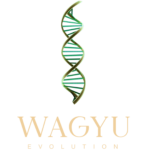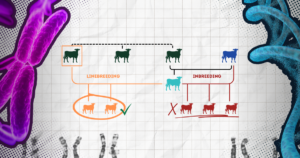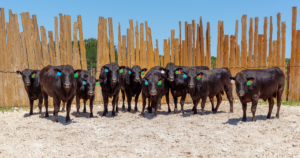Wagyu beef is renowned worldwide for its exceptional quality, but producing it can be complex and expensive. Artificial insemination and embryo transfer programs have become increasingly popular in recent years, and the incorporation of AI technologies is proving to be a game-changer in improving the genetic quality and productivity of Wagyu herds.
This blog post will explore the benefits of using AI and embryo transfer programs in Wagyu breeding, including increased efficiency, genetic diversity, and improved meat quality.
What Is AI In Wagyu Breeding?
AI in Wagyu cattle breeding refers to the practice of using carefully selected semen from superior Wagyu bulls to fertilize a female cow, either through natural or assisted insemination. The goal is to produce genetically excellent calves that exhibit desirable traits such as marbling, tenderness, and flavor, which are highly valued in the Wagyu beef industry.
Types Of AI Program In Wagyu Cattle Breeding
Different types of AI methods are used in Wagyu cattle breeding, each with unique advantages and disadvantages.
Natural Service AI
Natural service AI involves allowing the herd bull to mate naturally with the female cow. The Angus cow can spend a certain amount of time with the bull in this method. This type of AI has the advantage of allowing for natural breeding behavior, which can improve the fertility rate of the cow. However, it also presents the risk of disease transmission, as the bull and cow are in direct contact.
Artificial Vaginal Insemination
Artificial vaginal insemination involves collecting Wagyu semen from a selected Wagyu bull and placing it into the cow’s vagina using a catheter. This method has the advantage of being relatively easy to perform and requiring no special equipment. However, it has a lower success rate compared to other methods, and the semen may not be deposited in the correct location.
Transcervical Insemination
Transcervical insemination involves inserting a catheter through the cow’s cervix and depositing the semen directly into the uterus. This method has a higher success rate compared to artificial vaginal insemination since the semen is deposited directly into the uterus, which increases the chances of fertilization. However, this method requires specialized equipment and expertise.
In-Vitro Fertilization (IVF)
In-vitro fertilization (IVF) involves fertilizing the eggs of the female cow with sperm from a selected Wagyu bull in a laboratory setting. The fertilized eggs are then transferred into the cow’s uterus using embryo transfer. This method has the advantage of being able to produce a large number of genetically superior calves from a single Wagyu bull. However, it is a costly and technically challenging process.
Each type of AI method has its unique advantages and disadvantages. The choice of method will depend on the breeder’s specific needs and resources. The key is to ensure that the chosen method maximizes the chances of producing genetically superior Wagyu cattle.
Benefits Of AI In Wagyu cattle breeding
By using carefully selected semen from superior Wagyu bulls, breeders can improve the genetic traits of their herd, leading to a more productive and profitable breeding program. Here are seven benefits of using AI in Wagyu cattle breeding.
Increased Genetic Diversity
Using AI allows breeders to access superior genetics from Wagyu bulls unavailable in their immediate area. This leads to a broader genetic pool, which can result in more diverse, genetically superior offspring. This increased genetic diversity can help reduce inbreeding and maintain the health and productivity of the herd.
Improved Breeding Efficiency
AI allows breeders to inseminate many cows with a single ejaculate, maximizing the number of calves a superior Australian Wagyu bull sired. This improves breeding efficiency, reducing the time and resources needed to achieve the desired genetic improvements.
Reduced Risk of Disease Transmission
By using AI, breeders can avoid direct contact between bulls and cows, reducing the risk of disease transmission. This is especially important in areas with prevalent diseases such as bovine viral diarrhea (BVD).
Enhanced Breeding Accuracy
AI allows breeders to precisely control the genetic makeup of their herd by selecting semen from superior Wagyu bulls. This can lead to more accurate and consistent genetic improvements in the herd, resulting in higher-quality calves and improved heifer productivity.
Reduced Cost of Breeding
By using AI, breeders can reduce the cost of breeding by avoiding the need to maintain a large herd of bulls. Instead, they can use semen from a few superior Wagyu bulls to achieve their genetic goals, resulting in significant cost savings over time.
Improved Calving Ease
AI can lead to improved calving ease, as breeders can select semen from bulls with desirable calving ease traits. This can result in fewer dystocia cases, which can lead to improved Wagyu calf survival rates and reduced veterinary costs.
Increased Profitability
AI can help breeders produce more genetically superior calves, which can be sold at a premium price. This can lead to increased profitability for the breeder, making AI an attractive option for those looking to improve the productivity and profitability of their full blood Wagyu cattle breeding program.
What Are Embryo Transfer Programs in Wagyu cattle breeding?
Embryo transfer programs in Wagyu cattle breeding involve collecting and transferring embryos from superior Wagyu cows to recipient cows to produce genetically superior offspring. This technique allows breeders to increase the number of offspring from a single cow, maximize the use of superior genetics, and improve the productivity and profitability of their breeding program.
Benefits of Embryo Transfer Programs in Wagyu cattle breeding
Here are some benefits of using embryo transfer programs in Wagyu cattle breeding.
Genetic Diversity
Embryo transfer programs allow breeders to access superior genetics from Wagyu cows unavailable in their immediate area. This leads to a broader genetic pool, which can result in more diverse, genetically superior offspring. This increased genetic diversity can help reduce inbreeding and maintain the health and productivity of the herd.
Use Of Superior Genetics
Embryo transfer programs allow breeders to produce more offspring from superior cows, which maximizes the use of superior genetics. This can lead to more consistent genetic improvements in the herd, resulting in higher-quality calves and improved productivity.
Reduced Generation Interval
Embryo transfer programs can significantly reduce the generation interval in Japanese Black Wagyu cattle breeding, allowing breeders to make genetic progress more quickly. This can result in a more efficient breeding program and faster improvements in the genetic traits of the herd.
Number Of Offspring Per Cow
Embryo transfer programs allow breeders to produce more offspring from a single cow, which can result in significant cost savings over time. This can also help to maximize the use of superior genetics, leading to more consistent genetic improvements in the herd.
Reduced Risk Of Disease Transmission
Embryo transfer programs can help reduce the risk of disease transmission, as embryos can be transferred from a donor cow to a recipient red Wagyu cow without direct contact between the two animals. This is especially important in areas with prevalent diseases such as bovine viral diarrhea (BVD).
Breeding Accuracy
Embryo transfer programs allow breeders to precisely control the genetic makeup of their herd by selecting embryos from superior Wagyu cows. This can lead to more accurate and consistent genetic improvements in the herd, resulting in higher-quality calves and improved productivity.
Combining Ai And Embryo Transfer Programs In Wagyu Cattle Breeding
Combining AI and embryo transfer programs in Wagyu cattle breeding involves artificial insemination (AI) and embryo transfer techniques to produce offspring with desirable genetic traits. AI involves the insertion of semen from a superior Wagyu bull into a female cow’s reproductive tract. In contrast, embryo transfer involves removing embryos from a superior female Wagyu cow and transferring them to a recipient female cow.
By using both methods together, breeders can produce multiple offspring from superior cows and bulls in a shorter period, maximizing the use of superior genetics and improving the genetic traits of the herd. This approach can lead to increased breeding efficiency, improved calving ease, reduced risk of disease transmission, and increased profitability for breeders. Combining AI and embryo transfer programs is a valuable tool for those looking to improve the productivity and profitability of their Wagyu cattle breeding program.
Benefits Of Combining Ai And Embryo Transfer Programs In Wagyu Cattle Breeding
Combining AI and Embryo Transfer Programs in Wagyu cattle breeding can bring even more benefits than using either method alone. Here are seven benefits of combining AI and Embryo Transfer Programs in Wagyu cattle breeding.
A Greater Variety Of Genetic Variations
An increase in the herd’s genetic diversity may be possible due to the combination of AI and embryo transfer programs. Artificial insemination allows breeders to get superior genetics from Angus bull outside their local region. Embryo transfer programs allow breeders to create numerous offspring from superior cows.
Increased Productivity In Terms Of Breeding
The use of artificial intelligence (AI) in conjunction with embryo transfer programs has the potential to increase breeding efficiency. This is accomplished by enabling breeders to generate more offspring from better cows and bulls in less time. This may lead to quicker genetic improvements in the herd and a breeding program that is more effective as a consequence.
Improved Success Rates In The Breeding Process
Breeders have more exact control over their herds’ genetic makeup because of advances in AI and programs that facilitate embryo transfer. This may lead to more precise and consistent genetic improvements in the herd, resulting in better-quality calves and greater output.
Decreased Probability Of Infecting Others With Illness
Using artificial insemination (AI) in conjunction with embryo transfer programs can lower the disease transmission danger. This is because embryos may be moved from a donor cow to a recipient cow without physical contact between the two cows. This is of utmost significance in regions with a high incidence of bovine viral diarrhea (BVD), among other infectious illnesses.
Enhanced Facility Using Calving
The use of artificial intelligence and embryo transfer programs may lead to more consistent and predictable Calving, reducing the likelihood of problematic deliveries and improving the health of the herd as a whole.
Some Challenges And Limitations
While AI and embryo transfer programs have many benefits in Wagyu cattle breeding, there are also some challenges and limitations to consider. Here are some of them:
Technical Challenges
One challenge with AI and embryo transfer programs is the need for technical expertise. Proper handling of semen and embryos is crucial to success and requires specialized knowledge and skills. In addition, AI and embryo transfer programs require careful planning and management, as timing is critical for optimal results.
Cost Constraints
Cost is another limitation of AI and embryo transfer programs. These techniques can be expensive, especially for smaller-scale operations. The cost of equipment, supplies, and veterinary services can add up quickly, making it difficult for some breeders to justify the expense.
Ethical Concerns
There are also ethical concerns surrounding the use of AI and embryo transfer programs in Wagyu cattle breeding. Some people may view these techniques as unnatural or interfering with the natural reproduction of animals. There are also concerns about the animals’ welfare, such as the potential stress of repeated procedures.
Legal Implications
There are also legal implications when using AI and embryo transfer programs. For example, regulations may vary by country or region, and breeders may need permits or licenses to use these techniques. In addition, there may be legal issues surrounding the ownership and transfer of genetic material, such as semen or embryos.
AI and embryo transfer programs offer many benefits in Wagyu herd cattle breeding, but there are also challenges and limitations. Technical expertise, cost constraints, ethical concerns, and legal implications are all factors that breeders must consider when deciding whether to use these techniques in their operations.
Some Future Directions in AI and Embryo Transfer Programs
The future of AI and embryo transfer programs in Wagyu cattle breeding is promising, with ongoing research and developments aimed at improving the efficiency and effectiveness of these techniques. Here are some future directions to consider:
Advancements In Technology: As technology advances, new tools, and equipment may become available to improve the efficiency and success rates of AI and embryo transfer programs. For example, new methods of semen collection and processing may be developed to enhance the quality of semen used in AI. In contrast, new imaging and monitoring techniques may make tracking embryo development and implantation easier.
Genetic Selection: With the ability to more easily identify superior genetic traits, breeders may be able to use AI and embryo transfer programs to produce offspring with even more desirable characteristics. Genetic selection may also reduce the risk of genetic defects and improve overall herd health.
Sustainability: As the demand for high-quality Wagyu beef grows, there may be an increased focus on sustainability in Wagyu cattle breeding. AI and embryo transfer programs can be used to maximize the use of superior genetics and reduce the need for large herds, potentially reducing the industry’s environmental impact.
Collaboration: Collaboration among breeders, researchers, and veterinarians may lead to improved techniques and best practices for using AI and embryo transfer programs in Wagyu animal breeders. This can ensure that these techniques are used in a responsible and ethical manner.
frequently asked questions
AI (Artificial Insemination) is a process of fertilizing female cattle with semen from a male without natural mating. The embryo Transfer Program is a technique that involves the collection of embryos from a high-value donor cow and implanting them into surrogate recipient cows.
AI allows Wagyu breeders to use high-value sires to produce many offspring. This results in improved genetic quality and productivity of the herd. It also helps reduce the risk of inbreeding, leading to decreased Wagyu genetic diversity and increased susceptibility to diseases.
Embryo Transfer Programs allow fullblood Wagyu breeders to produce more offspring from high-value donors. This results in increased genetic progress and higher productivity. It also helps to reduce the generation interval, which is the time between generations of animals.
AI and Embryo Transfer Programs can help to improve the quality of Wagyu cattle beef by increasing the number of high-value animals in the herd. This results in increased consistency in the quality of Wagyu beef cattle produced.
Some challenges associated with using AI and Embryo Transfer Programs in Wagyu breeding include the need for specialized equipment and skilled personnel. It can also be expensive to purchase high-value sexed semen and maintain many surrogate recipient cows.
Final Thoughts On AI in Wagyu
Integrating AI and embryo transfer programs has revolutionized the Wagyu beef industry, allowing farmers to optimize their breeding programs and produce high-quality beef more efficiently. With AI technologies, farmers can identify and select superior genetics, improve herd health, and accelerate breeding, resulting in more productive and profitable herds.
As the demand for premium Wagyu beef continues to grow, these advanced technologies will play an increasingly important role in meeting consumers’ needs and ensuring the industry’s sustainability. By embracing AI and other innovative solutions, farmers can continue to raise the bar for Wagyu beef production and provide consumers with the best possible eating experience.



